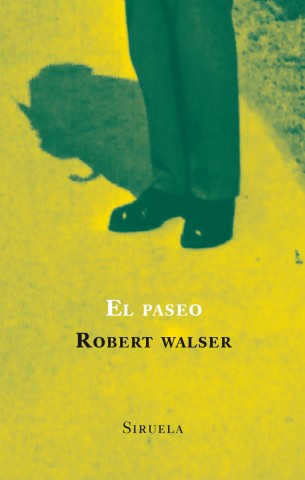Robert Walser (15 April 1878 – 25 December 1956) was a German-speaking Swiss writer. Walser is understood to be the missing link between Heinrich von Kleist and Franz Kafka. As writes Susan Sontag, "at the time [of Walser's writing], it was more likely to be Kafka [who was understood] through the prism of Walser." For example, Robert Musil once referred to Kafka's work as "a peculiar case of the Walser type."Walser was admired early on by Kafka and writers such as Hermann Hesse, Stefan Zweig, and Walter Benjamin, and was in fact better known during his lifetime than Kafka or Benjamin were known in theirs. Nevertheless, Walser was never able to support himself based on the meager income he made from his writings, and he worked as a copyist, an inventor's assistant, a butler, and in various other low-paying trades. Despite marginal early success in his literary career, the popularity of his work gradually diminished over the second and third decades of the 20th century, making it increasingly difficult for him to support himself through writing. He eventually had a nervous breakdown and spent the remainder of his life in sanatoriums, taking frequent long walks. A revival of interest in …
Robert Walser
Información sobre le autore
- Alias:
-
Robert Wal'zer, Robŏt'ŭ Palchŏ, Rompert Valzer, y 22 otros
רוברט ואלזר, 로베르트 발저, Robertas Valseris, Роберт Вальзер, Rómpert Bálzer, Robertus Walser, ローベルト ヴァルザー, רוברט ולזר, ロベルト・ヴァルザー, Robert Valzer, Robert Valʹzer, Robert Valzeri, Robert Walser, روبرت والزر, Robert Walzer, ローベルト・ヴァルザー, روبرت فالسر, ヴァルザー, Robert Otto Walser, Роберт Валзер, Roberṭ Ṿalzer, روبەرت ۆالزەر - Fecha de nacimiento:
- 14 de abril de 1878
- Fecha de defunción:
- 24 de diciembre de 1956
Enlaces externos
Robert Walser (15 April 1878 – 25 December 1956) was a German-speaking Swiss writer. Walser is understood to be the missing link between Heinrich von Kleist and Franz Kafka. As writes Susan Sontag, "at the time [of Walser's writing], it was more likely to be Kafka [who was understood] through the prism of Walser." For example, Robert Musil once referred to Kafka's work as "a peculiar case of the Walser type."Walser was admired early on by Kafka and writers such as Hermann Hesse, Stefan Zweig, and Walter Benjamin, and was in fact better known during his lifetime than Kafka or Benjamin were known in theirs. Nevertheless, Walser was never able to support himself based on the meager income he made from his writings, and he worked as a copyist, an inventor's assistant, a butler, and in various other low-paying trades. Despite marginal early success in his literary career, the popularity of his work gradually diminished over the second and third decades of the 20th century, making it increasingly difficult for him to support himself through writing. He eventually had a nervous breakdown and spent the remainder of his life in sanatoriums, taking frequent long walks. A revival of interest in his work arose when, in the late 20th century and early 2000s, his writings from the Pencil Zone, also known as Bleistiftgebiet or "the Microscripts", which had been written in a coded, microscopically tiny hand on scraps of paper collected while in a Waldau sanatorium, were finally deciphered, translated, and published.
